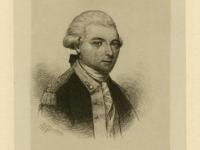Many people believe that the American Revolution was a united front against the oppressive government of Great Britain. This was not the case. Many colonists felt they deserved the same rights and liberties as British citizens because they believed they were British citizens. Many colonists were reluctant to leave the Britian. This lesson will expand upon this concept of liberty by having students make their own definition of liberty. Using excerpts from Common Sense by Tomas Paine and Plain Truth by James Chalmers, students will compare and contrast the different perspectives of colonists in their belief what is good and bad for the future of the United States. Students will also discuss whether that meant going to war of not. Finally, students will examine "Remarks Upon a Union with Great Britain and America" by Joseph Galloway, a Loyalist politician. Using the their current understanding of liberty, students will explain Galloway’s own views on independence. By writing a response essay, students will conclude and defend their viewpoint on Galloway’s support of unifying with Great Britain.
Is it Liberty to be Loyalist?
Is it Liberty to be Loyalist?
Essential Questions
Objectives
Students will be able to:
- Understand the different perspectives of American colonists during the Revolutionary War.
- Collaborate with others to create a singular work together.
Other Materials
- Common Sense-Thomas Paine (web excerpt)
- Plain Truth: a response to Common Sense- James Chalmers (web excerpt)
- Viewpoint chart
- Remarks upon a Union with Great Britian and America student handout
- Presentation: Liberty and Loyalists
Links for the materials are found at the bottom of the page
Suggested Instructional Procedures
1. (5min) Begin the lesson with an entrance ticket having students answer the question:
“What does Liberty mean to you?”
2. (5min) The entire class discusses definitions of liberty and writes down the agreed upon definition of liberty on the whiteboard or on a poster.
3. (10min) Use the presentation provided for background on the Revolution and what created the difference of opinion between colonists.
Discussion:
- How would a Loyalist try to fix the issue of taxation without representation?
- Why would a patriot not like the Loyalist’s solution?
4. (15min) Students get into groups of two (one student for “Common” and one for “Truth”)
One person in each group reads an excerpt of Common Sense while the other reads Plain Truth. Hand out the author viewpoint chart to each student in the classroom. After sharing, both students complete their viewpoint chart sheet together. Students decide what the authors believed was right for the colonists, what was not right, and the similarities in the authors beliefs if any.
After reading:
- Students answer the question on the top of the viewpoint chart sheet (chart found at the bottom of the page); explain the main idea of the excerpts.
- Using the author viewpoint chart, Students will have a pair-share where each student explains their reading.
Groups then disband for students to read individually and answer the question on the primary resource below.
5. (25min) Students read, excerpts from Remarks upon a Union.
Answer the questions on the student handout provided:
- What is Galloway’s viewpoint on independence?
- Why does Galloway believe this?
- How does the viewpoint of liberty by Galloway relate to the classroom’s viewpoint of liberty?
- Write a short essay responding to Galloway’s Remarks upon a Union.
Explain in the essay:
- Whether you support Joseph Galloway's viewpoint that the America should unify with the British Empire? Why or why not?
- During the American Revolution, why would Joseph Galloway's viewpoints be denounced by colonial patriots? Why would his viewpoints be viewed favorably to colonial loyalists?
Vocabulary
Sovereignty: freedom from external control
Subordination: placement in a lower class, rank, or position
Relinquished: left behind
Whig: The political party within the colonies that rejected being under British rule and laws
Tory: Any colonist that was perceived to support the British or were against the Revolution
Related Resources for Students
Plans in this Unit
Grade Level
Duration
Standards/Eligible Content
About the Author
This lesson was created by Brandon Rothenberger, Education Intern, Historical Society of Pennsylvania.
Attention Teachers!
Let us know how you used this plan and be featured on our site! Submit your story here.

